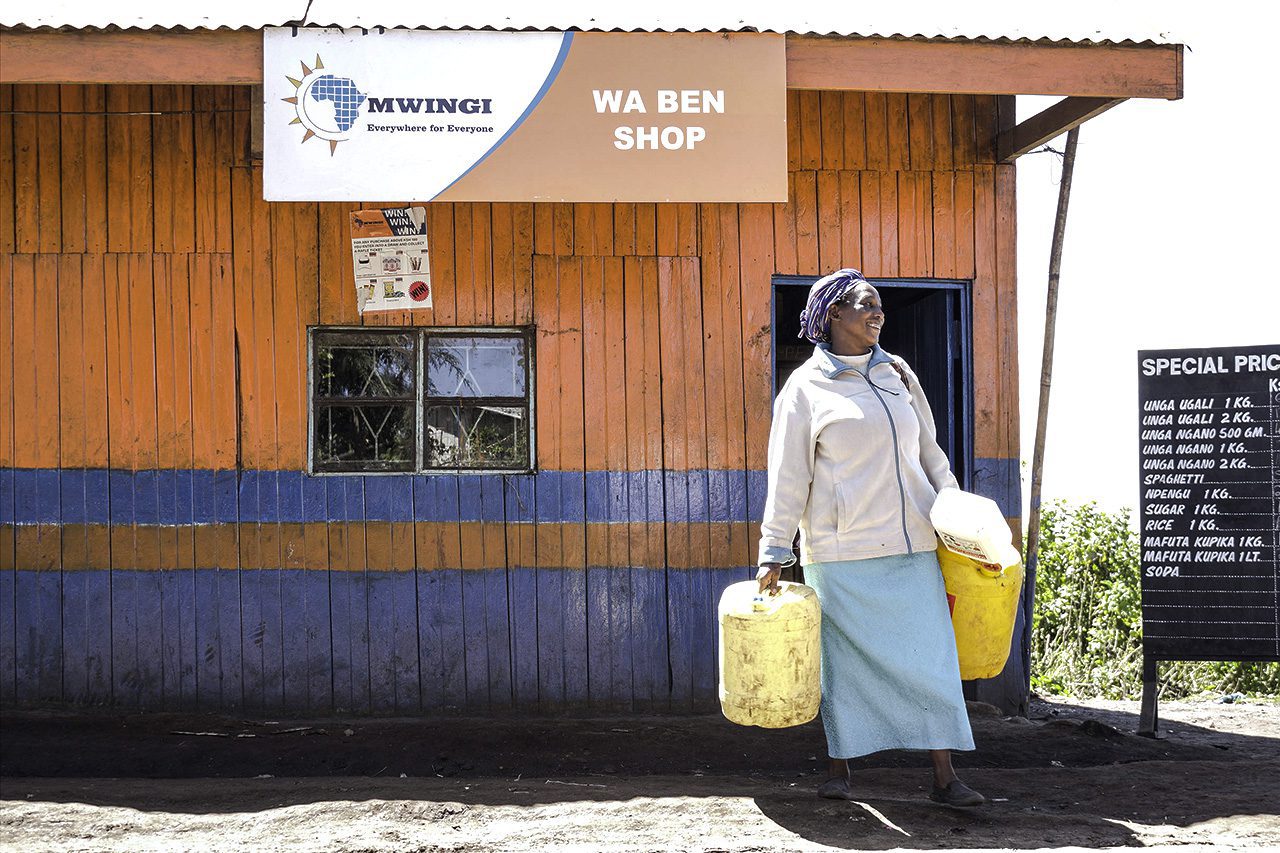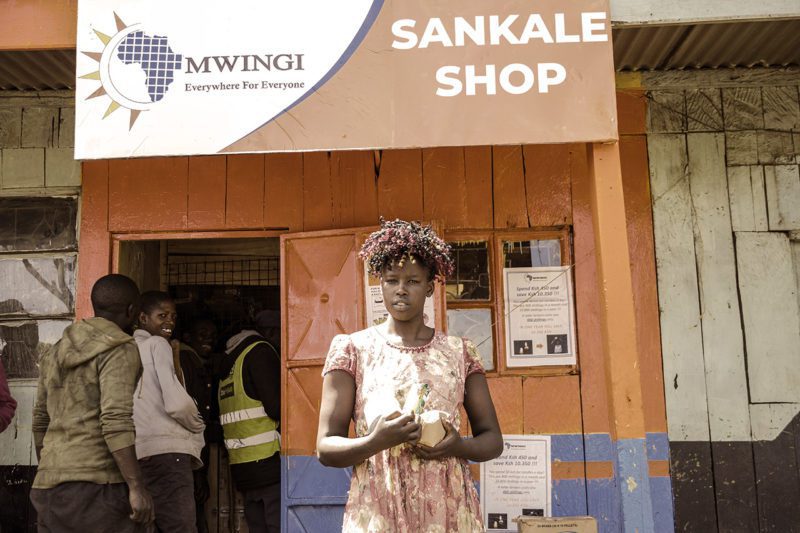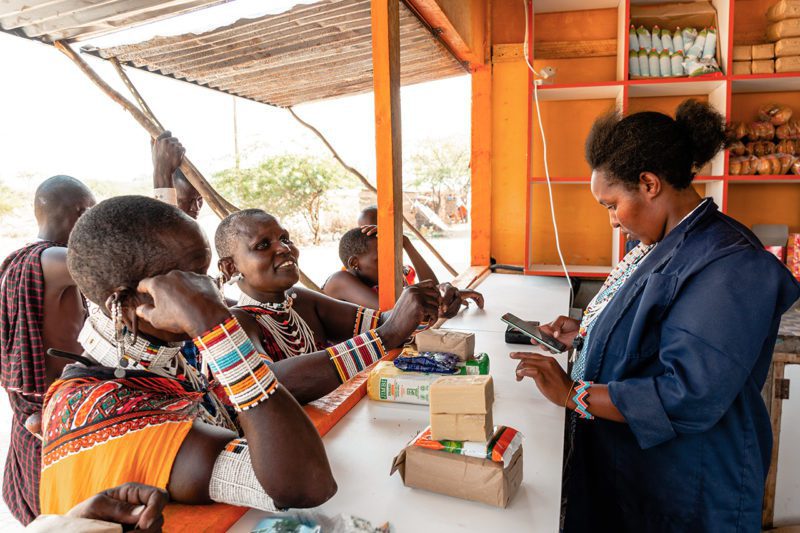Sovereign Seeds: Reclaiming MENA’s Agricultural Future
Reviving local food systems and unlocking rural prosperity
While improving access to quality goods in rural areas

Mwingi is a women-owned, franchise retail company that helps provide access to affordable quality goods in rural areas in Kenya. Supply of goods is an urgent need for people living in rural Kenya, who often aren’t able to buy the basic supplies they need. Mwingi was co-founded in 2019 by Brenda Mideva and Dr. Manuela Raith. They want to “formalize what is still an almost completely informal market that accounts for the majority of daily consumer good transactions in Africa”. I was introduced to Manuela by Will Galvin, the Executive Vice-President of Self Help Africa, who spoke of Mwingi in glowing terms and praised the impact that Mwingi was having on the small retail shop industry in Kenya. I had the opportunity recently to speak with Manuela by video, and below are some of the highlights from our fascinating conversation.
 Brenda and Manuela are entrepreneurial women with complementary skill sets and strengths. They met in 2015, while working for another company in Kenya. Brenda was an HR manager and Manuela was the country manager for Kenya (and for a number of other countries). Manuela mentioned that she had to spend a lot of time in Kenya because that company had a lot of issues there. She therefore had the opportunity to get to know Brenda well, and Brenda was always her helping hand at the company. Although Brenda used to report to Manuela, the two are now equal partners at Mwingi.
Brenda and Manuela are entrepreneurial women with complementary skill sets and strengths. They met in 2015, while working for another company in Kenya. Brenda was an HR manager and Manuela was the country manager for Kenya (and for a number of other countries). Manuela mentioned that she had to spend a lot of time in Kenya because that company had a lot of issues there. She therefore had the opportunity to get to know Brenda well, and Brenda was always her helping hand at the company. Although Brenda used to report to Manuela, the two are now equal partners at Mwingi.
Manuela, who is originally from Germany, started her career in industry, working for an IT out-sourcing business, part of one of the biggest companies in Germany, Siemens. She was a turn-around manager in China, Europe, and Africa, and managed departments, sometimes with as many as 400 people. Her forte was to grow a company and make it profitable, so she knows a lot about financials, standardization, and IT. She also has a PhD in mathematics, although she says she was never really a mathematician. She loves business, loves figuring out how to make a profit, and says mathematics was just her educational background.
Brenda, with a major in human resource management, is now the Managing Director of Mwingi, as she also has competencies in sales, finance, marketing, and supply chain management. Manuela and Brenda have known each other for a long time so they trusted each other. In Manuela’s words, “you never know [if] starting with someone new”.
Of note, the majority of Mwingi’s franchisees are women.
Co-founder Manuela introducing Mwingi
Brenda knows Kenya well: the politics, the social issues, how to speak to people, the villages into which Mwingi may choose to expand. Manuela does not speak the local languages, so Brenda is the person on the ground and the one making connections. Brenda is in charge of all the local aspects of the business: she hires staff, contracts with suppliers, finds/selects franchisees (she talks to people in each village, e.g., village chief, teacher, priest, to get recommendations, puts up signs and posters advertising the franchisee role, and then interviews people to select them). Manuela ensures the business has standardized processes that will enable it to scale to many locations. For her, IT is very important, not least a robust point-of-sale system. It’s imperative that Brenda and Manuela know how much stock they have at any point in time. Otherwise, they’d be flying blind, especially as the shops are geographically very dispersed. If their numbers are robust, investors can trust in the business, so Manuela is adamant about using internationally recognized accounting standards.
Co-founder Brenda introducing Mwingi
At the company where Brenda and Manuela had been working before, they learned that there was a huge opportunity for retail business in rural markets. However, the previous company did not fully concentrate on retail and was active in the electricity business. Issues arose in part due to the cost of electricity, which in Kenya is very expensive. When forming Mwingi, Brenda and Manuela learned from five of the previous company’s mistakes:
Instead of growing sales and trying to solve the profit issues later, Brenda and Manuela want to become profitable in only 18 months by implementing efficient processes from the very beginning.
Mwingi sells only the most essential products to reduce operational complexity.
Rent the shops rather than build them.
Run the shops with franchisees as opposed to employees.
The old company didn’t have one, which caused many problems.
In short, Brenda and Manuela have focused on profit, offering essential and affordable products that customers really need, and implementing a robust inventory management system.
Mwingi is always looking for innovative solutions to business problems. For instance, they added solar roofs to all their shops because they needed electricity to run their point-of-sale system and most of their targeted villages are not connected to the grid. As they knew from before, electricity is a significant cost of business in Kenya; plus, Kenya gets plenty of sunlight. So, with the solar roofs Mwingi can save money on electricity, and help the environment by using a green energy source.

Other innovations include a point-of-sales system that works both on and offline in case the internet is not available, an app that allows them to check the stock in their shops daily, and a system to receive the sales money on their accounts daily. The calculation of the replenishment of the products in their shops is fully automated and they implemented a dashboard that shows in real time all the relevant business figures, which allows them to react in a timely manner.
All Mwingi shops are designed such that customers have to ask the storekeeper for the goods and products that are all kept behind the counter, which makes it easier to manage loss prevention (an issue at their previous company).
Brenda and Manuela wanted to give their franchisees targets that are also company targets. Mwingi’s franchisees are taught to think about profit, i.e., that sales are not the same thing as profits. The franchisees know that if they lower their product prices, although sales may go up, the profit will go down. Therefore, Mwingi doesn’t simply pay franchisees a commission as a percentage of sales, but rather a salary based on profit and shop performance. This enables the franchisees to become real entrepreneurs.
In addition, this promotes a social good: Mwingi wants their franchisees to sell at market prices – it’s important to Brenda and Manuela that Mwingi isn’t pushing out other shops. They want their shops to be part of the community and don’t want to destroy other businesses. If Mwingi allowed their franchisees to sell at any price and not worry about profit, they would have an unfair advantage over other businesses.
New franchisee interview
One key for the success of any shop is the correct selection of location and franchisee. Mwingi had a shop that wasn’t doing well, and after they relocated it, the shop was a success. Another Mwingi shop had a franchisee that was really good, and when she moved, the shop she went to did really well, and the shop she left behind didn’t. When shops are successful, then franchisees tend to stay because Mwingi pays very well. If achieving their targets, a franchisee can earn just as much as a teacher, and can invest this income in their families, especially in their children’s education.
Shop opening ceremony clip
Mwingi’s investors have been mostly individuals. One investor is from the United States, and the rest are from Europe. A majority of the investors want both a return on their investment and to make an impact. Mwingi provides its investors with both. The investors love being part of the company: they get stories about franchisees, they can visit Kenya and see Mwingi’s shops, they are part of the business and development of the company and at the same time, they feel good about giving back to society.

When Mwingi was formed, the first thing Brenda and Manuela did was test their model. After determining that the model was sustainable, they then opened 2 shops. Mwingi grew to 8 shops last year, and they plan to ramp up to 100 shops and become profitable in 18 months (by mid-2023). They’ve just raised $850,000 to get to those 100 shops. Next, the plan is to grow to 2,000 shops in 5 years (2027). Mwingi needs $3 million to do this, and they will be starting their next round of funding soon. They aim to raise the additional capital in the next 18 months.
It’s clear that an enormous amount of care and thought has been put into the planning and execution of Mwingi’s business model. Mwingi is a great example of entrepreneurs that saw a societal need and created a business to meet that need. As part of its business model, Mwingi has also been able to empower other female entrepreneurs via its franchises. Being able to give back to society and build a successful company has been immensely rewarding for both Brenda and Manuela, two extraordinary women with a passion for profit and purpose.
Related Content
Comments
Deep Dives

Featuring
Clarisse Awamengwi
IE Correspondent
July 17 - 12:00 PM EST

Featuring
Russell McLeod
July 24 - 12:00 PM EST
RECENT
Editor's Picks
Webinars
News & Events
Subscribe to our newsletter to receive updates about new Magazine content and upcoming webinars, deep dives, and events.
Become a Premium Member to access the full library of webinars and deep dives, exclusive membership portal, member directory, message board, and curated live chats.
At Impact Entrepreneur, we champion fearless, independent journalism and education, spotlighting the inspiring changemakers building the Impact Economy. Diversity, equity, sustainability, and democracy face unprecedented threats from misinformation, powerful interests, and systemic inequities.
We believe a sustainable and equitable future is possible—but we can't achieve it without your help. Our independent voice depends entirely on support from changemakers like you.
Please step up today. Your donation—no matter the size—ensures we continue delivering impactful journalism and education that push boundaries and hold power accountable.
Join us in protecting what truly matters. It only takes a minute to make a real difference.
0 Comments